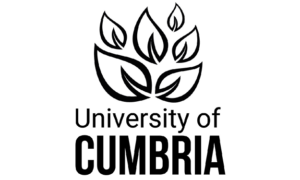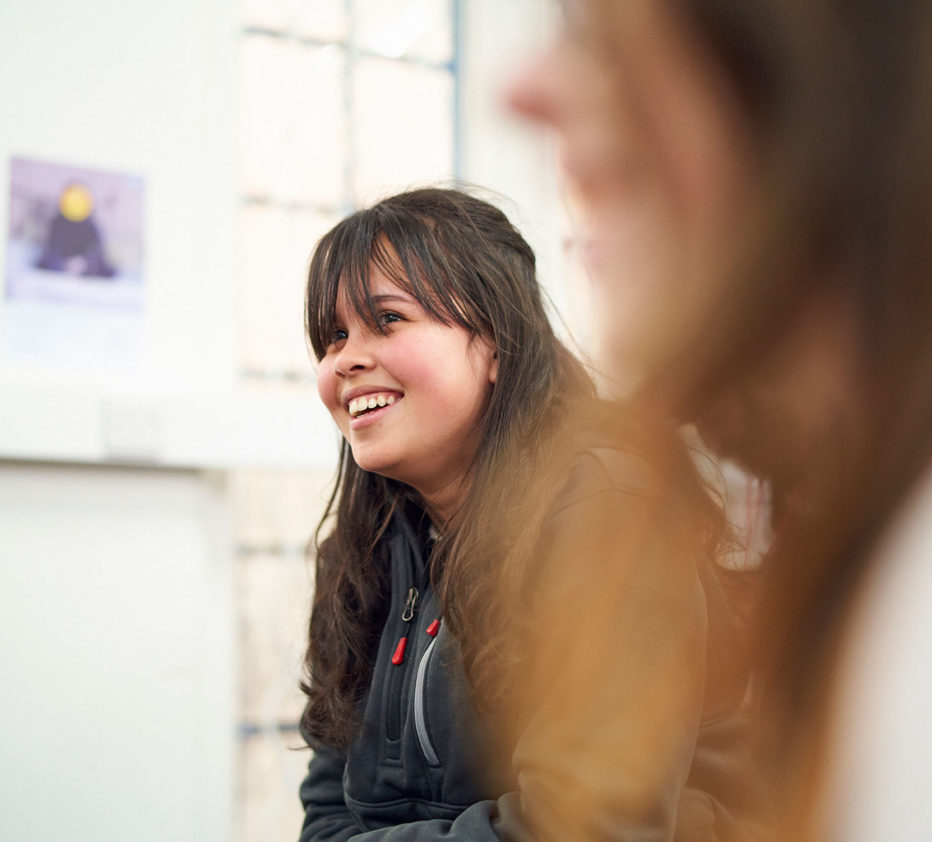This programme is ideal for anyone who wants to make a difference to the lives of children, young people, and families. The programme will develop the knowledge and skills you need for a career across a range of professional areas, or for entry into further postgraduate study
You should have a suitable Level 3 qualification, as well as GCSE English and Math’s qualifications at grade 4 or above, or the equivalent Level 2 qualifications.
If you are not already employed within the sector, there is a compulsory 70-hour placement.
This course is suject to successful interveiw and satisfactory DBS clearance.
| Study level | Cost | Additional fees |
|---|---|---|
| 19+ | please enquire | Fees for September- £6165 (please note, fees may be subject to change) It is not possible to confirm fees for future academic years but the maximum increase each year will not exceed the rate of inflation as measured by the Consumer Price Index (CPI). The following course-related costs are included in the fees: - Termly £10 printing allowance The following course-related costs are not included in the fees: - The cost of your personal stationary materials, such as pens, paper and folders - Compulsory DBS (if not already employed within the sector and have a current, up to date DBS) - You may choose to purchase books from the recommended reading lists, however the College Learning Resource Centre has an excellent range of all books suggested within your units studied – hard copies and/or online - Students are expected to arrange own travel, including to placements. Financial support: For more information on Student Finance please go to our HE Finance page. |
All teaching will take place in the classroom environment, but you will be expected to use your experience within the workplace to inform your learning. Throughout your programme of study, you will be required to complete assessments to demonstrate your learning of subject knowledge and transferable key skills.
You will experience a range of different types of assessment during your programme which will include some of the following:
- Case studies
- Literature reviews
- Group work
- Presentations
- Portfolios
- Reports
- Proposals
- Multiple choice questions
- Reflections
You will typically have around 11 contact hours per week, consisting of:
- 9 hours of lectures
- 2 hours of tutorial/pastoral support
Independent learning:
When not attending lectures, you will be expected to continue learning independently through self-study. Typically, this will involve reading journal articles and books, working on individual and group projects, undertaking research, preparing coursework assignments and presentations
Your independent learning is supported by a range of facilities, including a personal tutor, the HE academic support tutor and the Learning Resource Centre facilities available to you.
Overall Workload:
Your overall workload consists of class contact hours, around 10 hours’ independent learning, and assignment activity.
Academic support: Our HE Academic Support Tutor provides help in the following areas:
- Study skills (including reading, writing, note-taking and presentation skills)
- Written English (including punctuation and grammatical accuracy)
- Academic writing (including how to reference)
- Research skills (in conjunction with the learning centres)
- Critical thinking and understanding arguments
- Revision, assessment and examination skills (including time management)
Teaching staff:
You will be taught by an experienced teaching team, whose expertise and knowledge are closely matched to the content of the modules on the course. The team includes lecturers with industry experience.
Our teaching is informed by the relevant practice within the sector and 100% of our lecturers have a teaching qualification.
Assessment:
The course provides you with opportunities to test your understanding of the subject informally before you complete the formal assessments that count towards your final mark. Each module normally contains at least one piece of ‘formative’ assessment for which you receive feedback from your tutor.
There is a formal or ‘summative’ assessment at the end of each module. Assessment methods examples include written tasks, assignments, portfolio work and presentations. The grades from formal assessments count towards your module mark.
Percentage of the course assessed by coursework:
100% of the course is assessed by submission of module work.
Feedback:
You will receive feedback on formal assessments undertaken by coursework. Feedback is intended to help you learn and you are encouraged to discuss it with your module tutor.
We aim to provide you with feedback within 20 working days of hand-in (formal coursework assessment).
English and Maths are important life skills that will help you to achieve your best in your studies and progress to your future career. It is expected that you will have your Maths and English qualifications as part of the entry criteria.
If you are not already employed within the sector, there is a compulsory 70 hour placement. Placement will enable you to make important links from theory to practice, a key academic skill that you will be encouraged to develop. Placement can be voluntary or paid, but must be within a relevant setting. If you are already employed within the sector you don’t need to undertake an additional placement.
This programme is a University of Cumbria programme. We work with the university and partner colleges to deliver this programme.
We also work in partnership with various early years, education, health and social settings within the local area.
When not attending lectures, you will be expected to continue learning independently through self-study. Typically, this will involve reading journal articles and books, working on individual and group projects, undertaking research, preparing coursework assignment and presentations. Your independent learning is supported by a range of facilities including a personal tutor, the HE academic support tutor, learning centre and the facilities available to you at University of Cumbria.
This is a 2 year full-time programme.
You can choose to study this course either over two days or two evenings. (Please note evening delivery commences at 4:15pm).
The aims of this programme are to:
- Provide a supportive and responsive learning environment that will enable students with different experiences to develop a flexible and transferable skill set.
- Engage students with a variety of learning experiences that build on skills and knowledge at each of the three levels of the programme to facilitate the development of a critical understanding of the children’s workforce and social care settings.
- Develop the skills, knowledge and understanding to work in integrated practice settings across the children’s workforce and social care settings.
- Confidently engage with and support the development of children, young people, families and communities.
- Plan, deliver and evaluate projects and interventions that support social action and social justice.
- Understand and locate themselves within the local, national and global children’s workforce and social care settings.
This programme has a number of distinguishing features including:
- An emphasis on interdisciplinary working, employability, internationalisation, research skills and social justice
- To provide a supportive and responsive learning environment that will enable students with different experiences to develop a flexible and transferable skill set
- To engage you with a variety of learning experiences that build on skills and knowledge to facilitate the development of a critical understanding of the children’s workforce and social care settings
- Develop the skills, knowledge and understanding to work in integrated practice settings across the children’s workforce and social care settings
- Confidently engage with and support the development of children, young people, families and communities
- Plan, deliver and evaluate projects and interventions that support social action and social justice
- Understand and locate themselves within the local, national and global children’s workforce and social care settings
Modules:
This module map provides a list of the modules that make up your course.
Year 1 -
- Perspectives in Human Development
- Professional Skills with Children, Young People, Families and Communities
- Social and Political Influences on Policy and Practice
- Play and Creative Development in Diverse Contexts
- Cultural and Historical Influences on Children, Young people and Families
- An Introduction to Practitioner Research
Year 2 -
- Researching and Evaluating Practice
- Equality, Diversity, Inclusion and Anti-oppressive Practice (with work-based learning)
- The Internet, Media & Society
- Crime & Conflict
- Identity, Personality and Social Justice
- Innovative Approaches to Working with Children and Families
You can obtain more information about the course from the University of Cumbria website by accessing the first 2 years of the BA Hons:
https://www.cumbria.ac.uk/study/courses/undergraduate/working-with-children-and-families-top-up/
University of Cumbria
240 credits (Level 5)
This course can provide you with many progression and career options. These include continuing with further study at Level 6 – including the BA (Hons) Working with Children and Families (Top-up) – or in an allied field or employment.
Career options include those relating to the education, children and families sector. Other possible career options include employment within the health and social care sector supporting children and families, special educational needs and disabilities.

This is a Higher Education course with Sunderland College and is validated by the University of Cumbria.
Visit the University of Cumbria website here.

Find out everything you need to know about Sunderland College and our exciting range of courses!
Register for our next open event
(*Based on 16-18 year olds destination data, 2019/20 academic year)

100% overall A-Level pass rate
Summer 2021

97.4% of our apprentices progressed to employment or further study.
Destination data for Sunderland College 2019/20, Apprentice completers.

Our excellent student support services and expert staff will help you reach your potential.

Recognised regionally and nationally for our high-quality approach to careers education